AI Summary
Would you like to receive SMS notifications whenever your site fails to send emails? With Twilio integration, email alerts can be sent from your site to any mobile device. SMS alerts are sent via your Twilio phone number.
This tutorial will show you how to configure SMS alerts via Twilio in WP Mail SMTP.
Before getting started, you’ll first need to make sure WP Mail SMTP is installed and activated on your WordPress site and that you’ve verified your license.
Accessing the Email Alerts Page
To begin setting up email alerts from the WordPress dashboard, go to WP Mail SMTP » Settings and click on the Alerts tab.
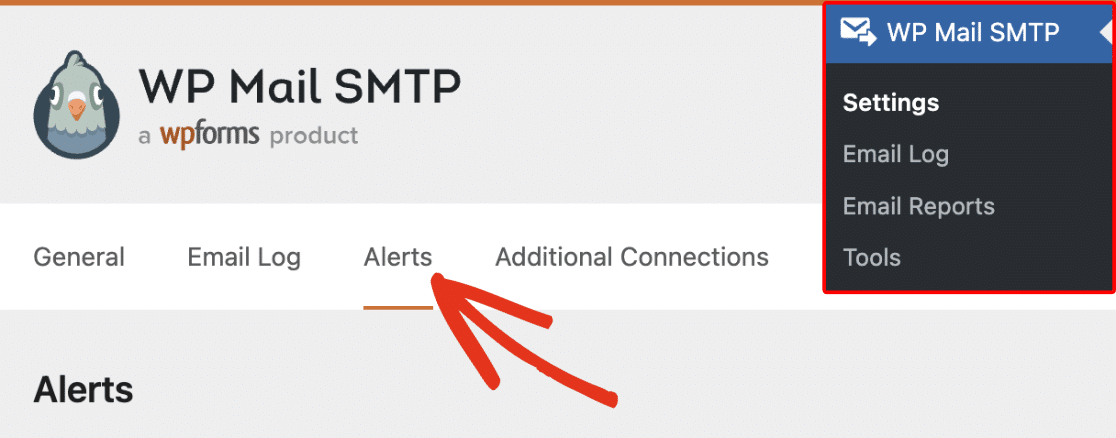
Once here, scroll down to the SMS via Twilio section. To set up Twilio integration, ensure that you have the SMS via Twilio Alerts option toggled to the on position.

Note: Due to SMS character limits, this service integration cannot provide you with extensive details. Instead, the message you receive will include the title and log number corresponding to the error that triggered the alert.
You can leave this browser tab open as we’ll return to it later.
Creating a Twilio Phone Number
If you don’t already have a Twilio phone number, you’ll need to create one. To do this, log in to your Twilio account and click the Get a Twilio phone number button.
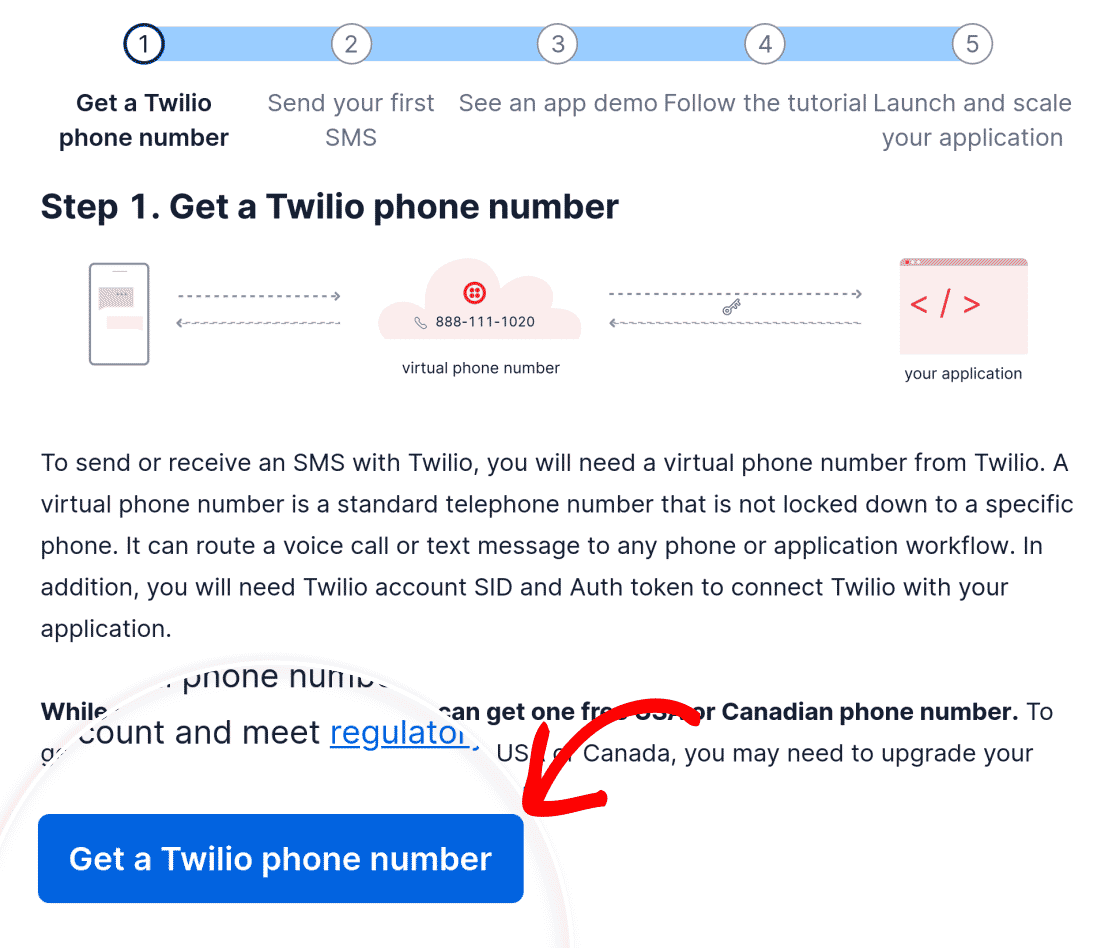
Once your number has been successfully generated, you’re ready to continue setting up Twilio integration on your site.
First, copy your Account SID from the Twilio console.
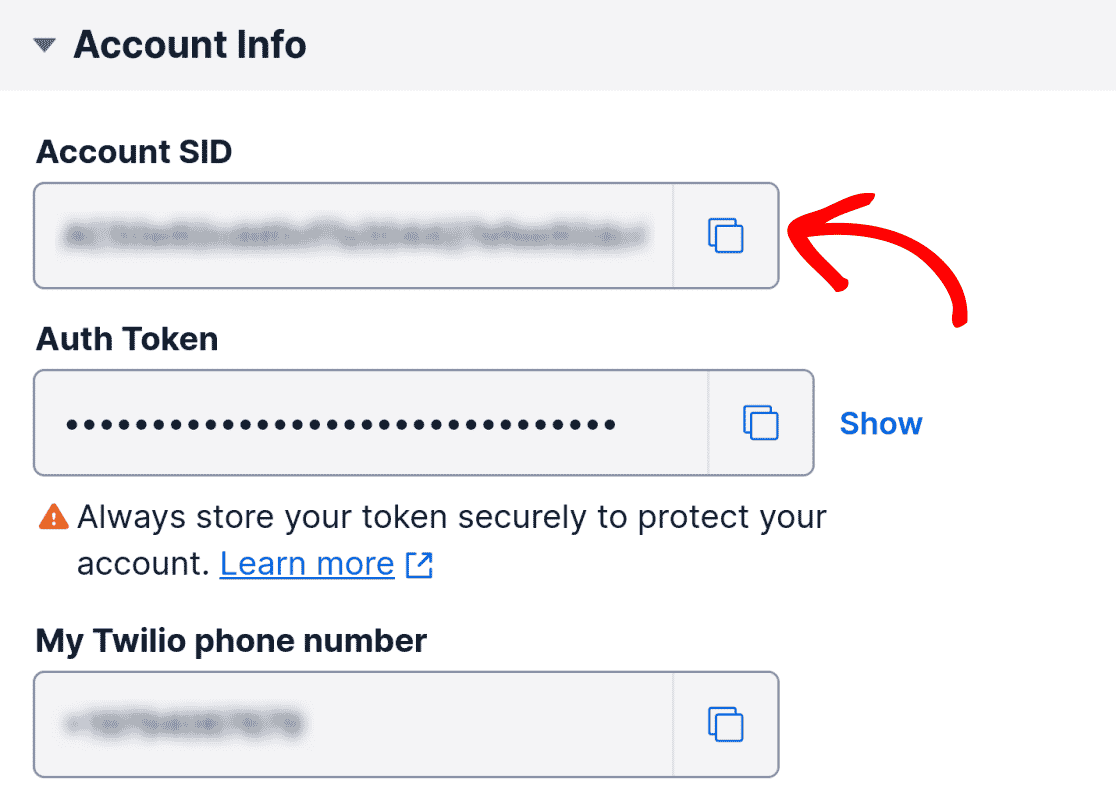
Then, paste your Account SID into the Twilio Account ID field in WP Mail SMTP.
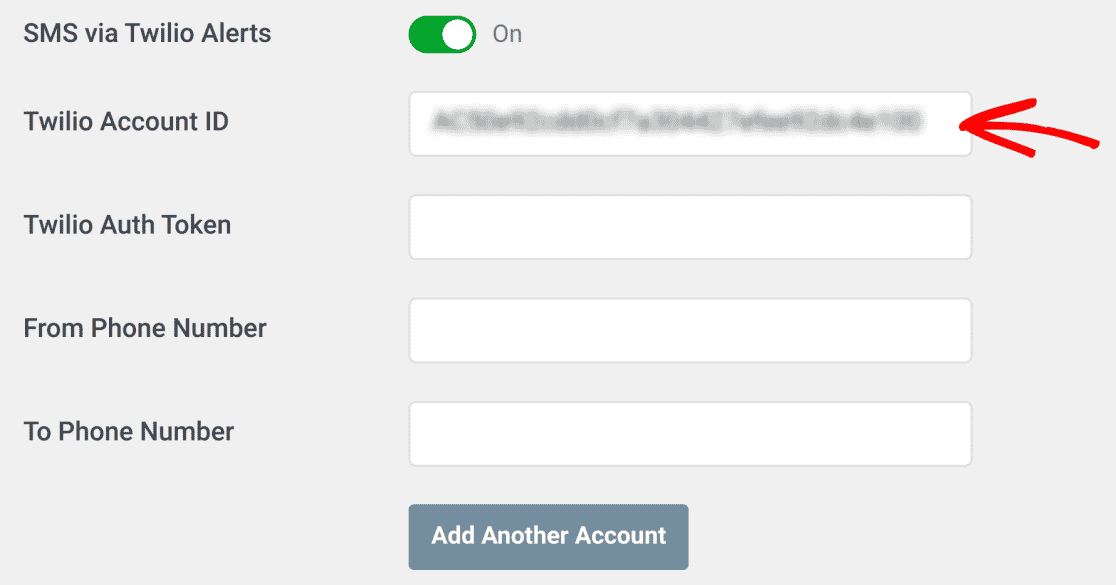
You’ll also need to copy the Auth Token from the Twilio console.
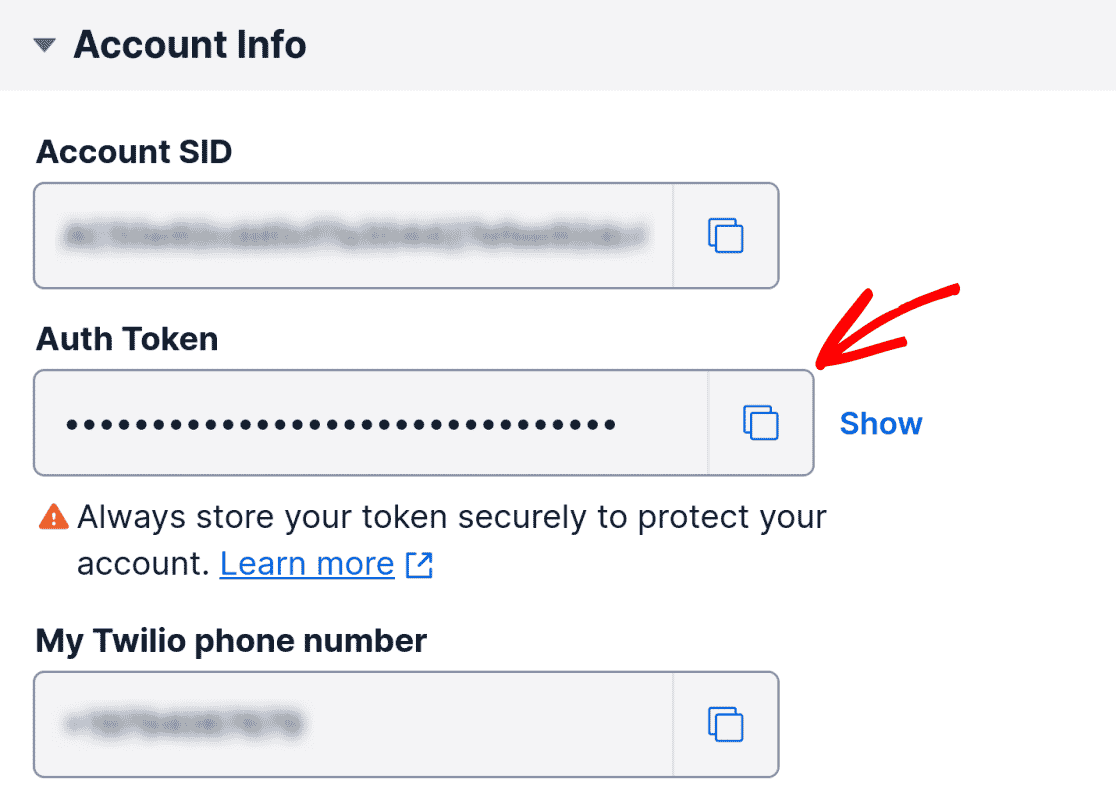
Next, paste the Auth Token in the Twilio Auth Token field in WP Mail SMTP.
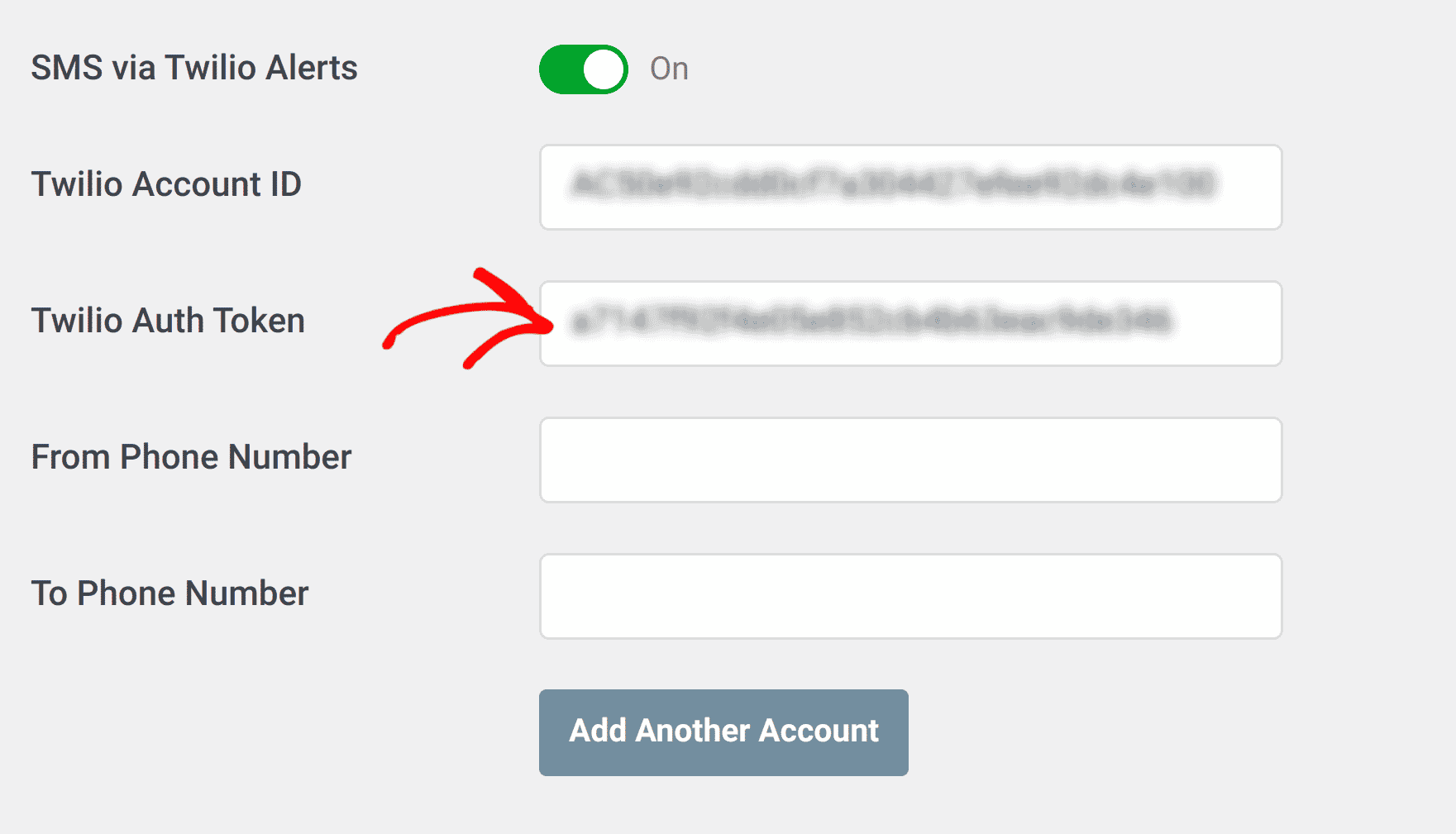
Now, copy your Twilio phone number from the Twilio console.
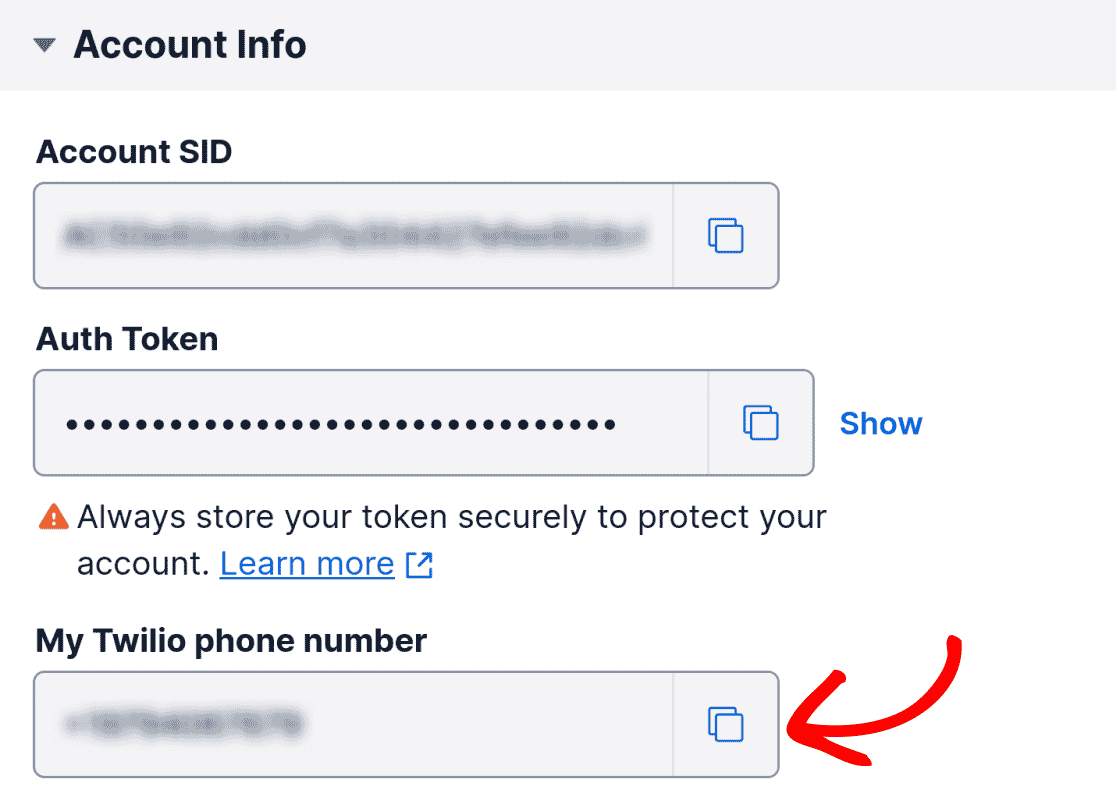
In your Alerts settings in WP Mail SMTP, paste your Twilio phone number in the From Phone Number field.
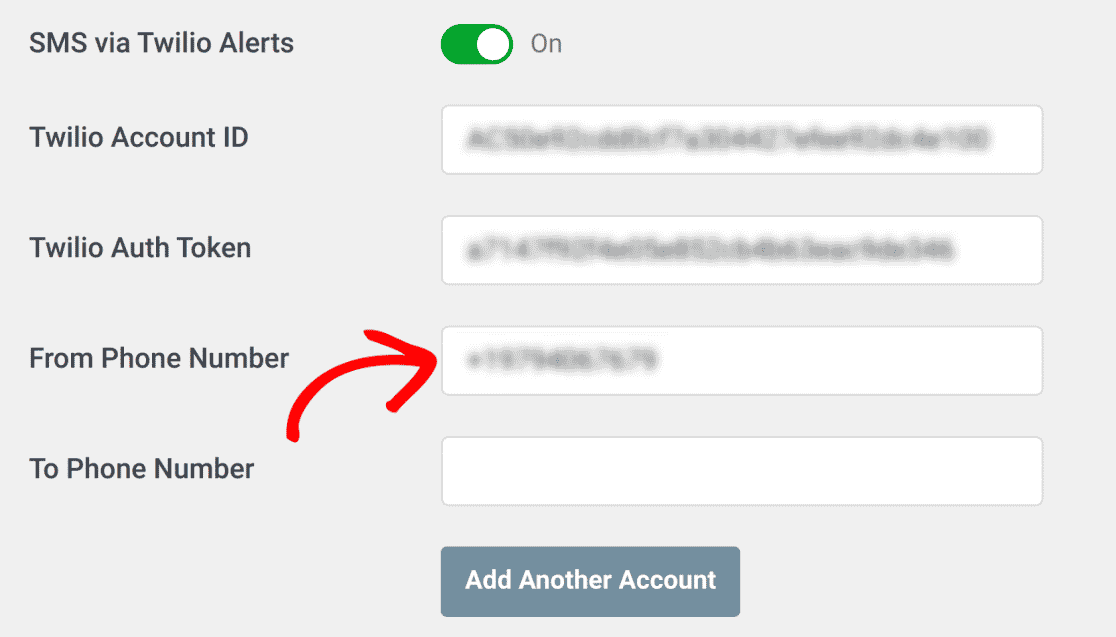
Finally, add the phone number that will receive alerts in the To Phone Number field.
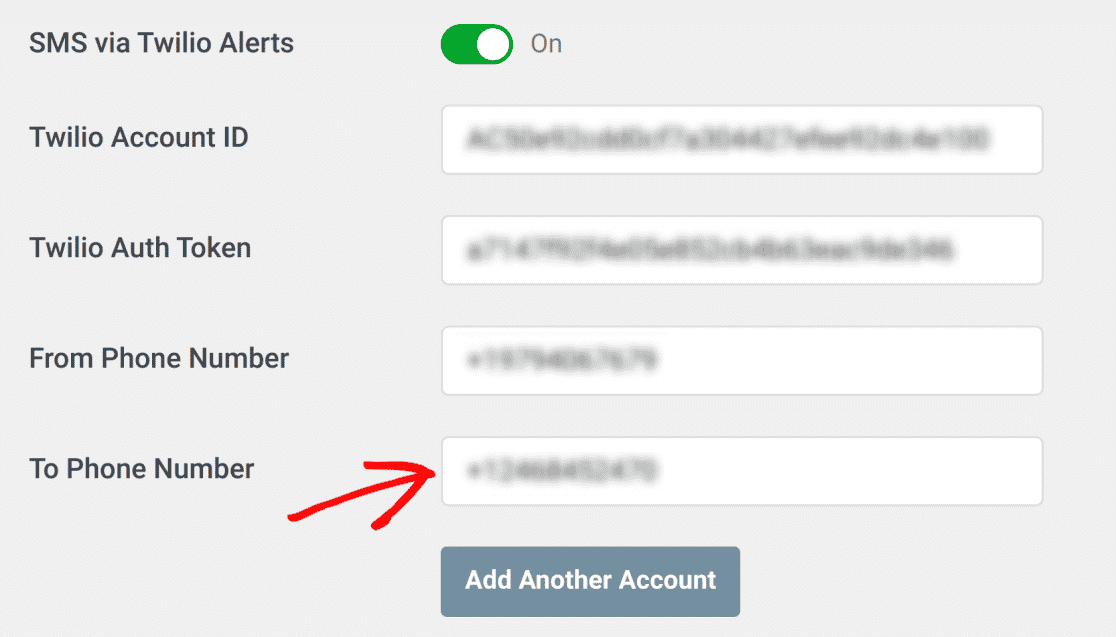
You can now continue to set up other integrations or save your settings. To save your settings, scroll down and click the Save Settings button.

Note: If you aren’t receiving Twilio SMS alerts after following the setup process, see our FAQ section to help get you on track.
Frequently Asked Questions
Below, we’ve answered some of the top questions about setting up SMS notifications via Twilio for failed emails in WP Mail SMTP.
Why am I unable to receive Twilio SMS alerts?
If you’re not receiving Twilio alerts, first ensure that your Twilio phone number is active. To do this, go to Phone Numbers » Manage » Active Numbers in your Twilio console.
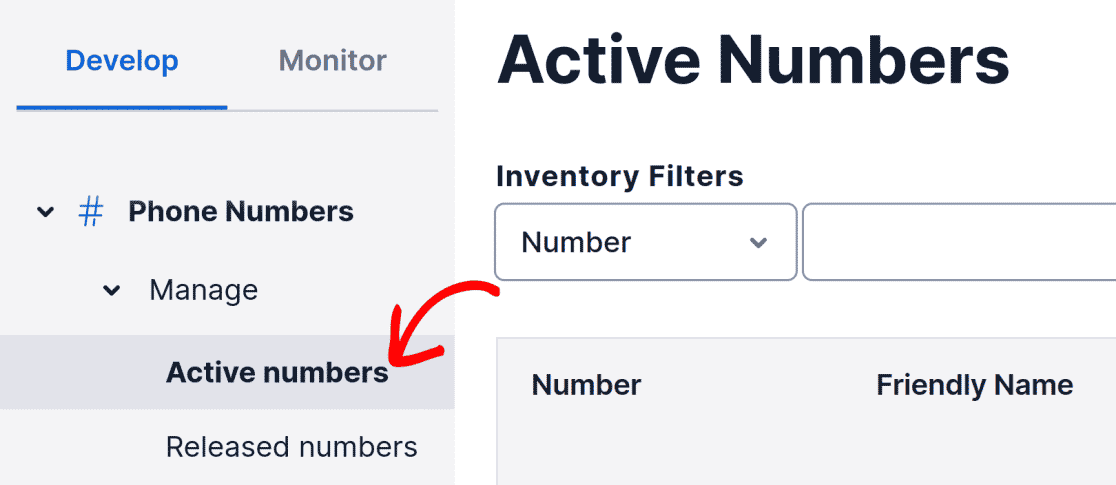
You should see at least one number listed in the Active Numbers list.
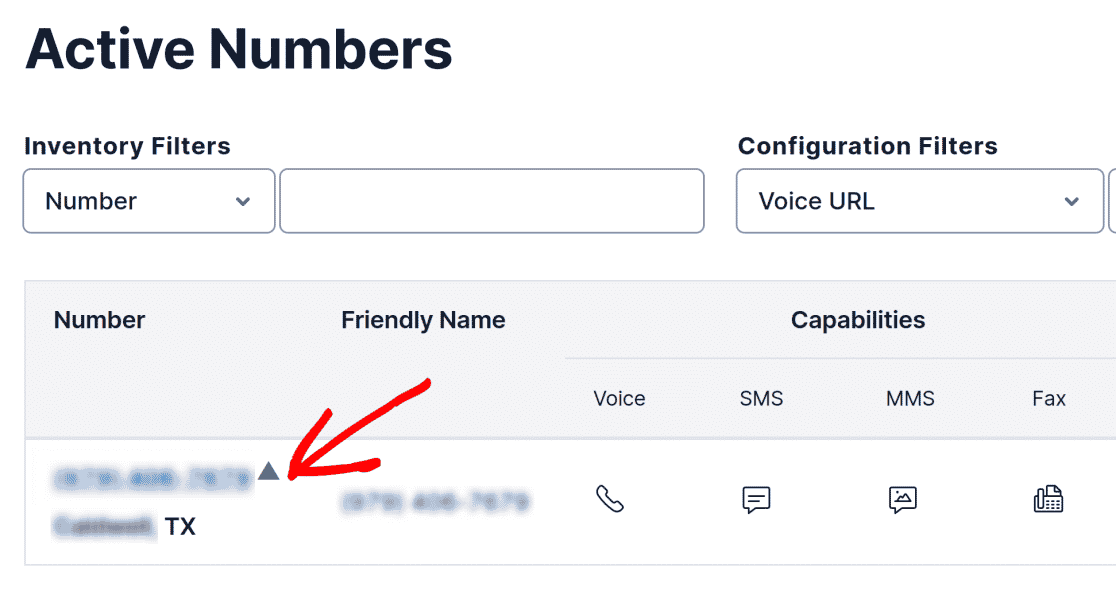
If your number is active but you are still not receiving alerts, you may be unable to send messages to your region due to your geolocation permissions settings. You’ll need to adjust your geolocation permissions in order to resolve this issue.
From the Twilio console, go to Messaging » Settings » Geo permissions to view your geolocation settings.
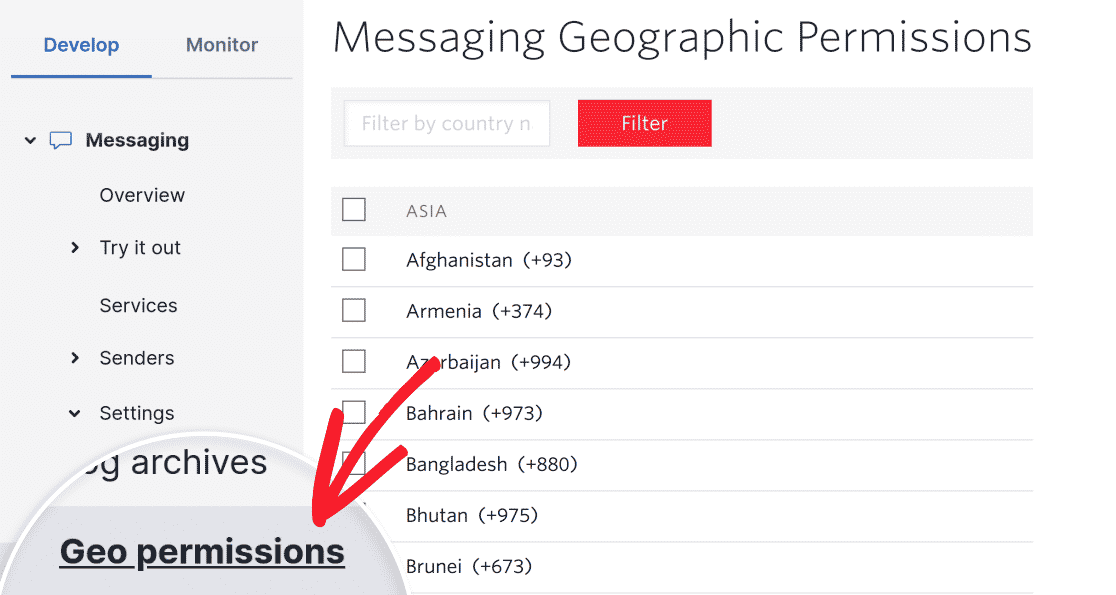
Next, find your country or region and ensure that it has been enabled.
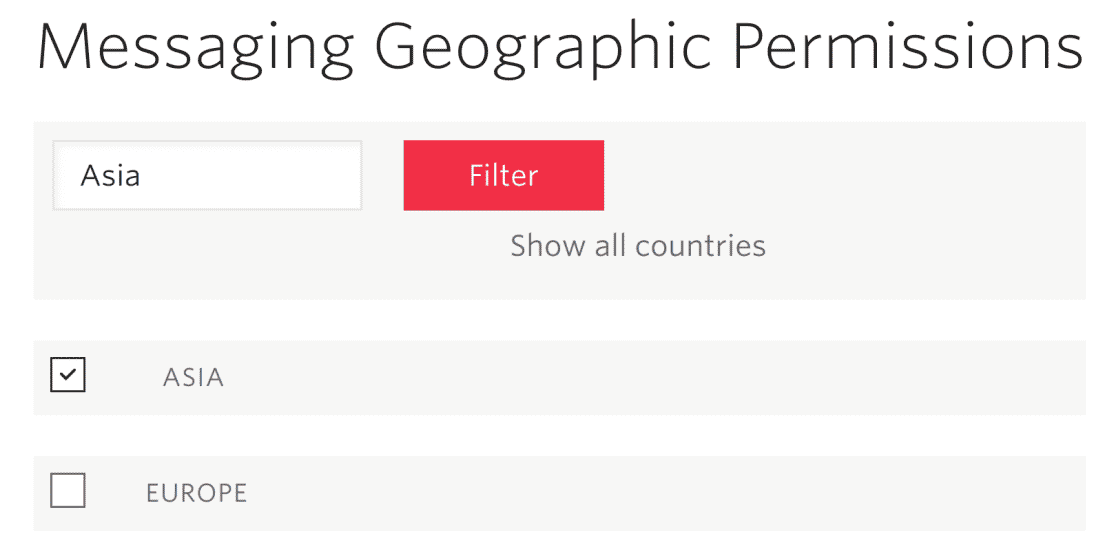
Note: If you are using a Twilio trial account, you will only be able to send alerts to the numbers that you have verified. Please see Twilio’s documentation on verified numbers for more information.
That’s it! You’ve now learned how to configure SMS alerts via Twilio in WP Mail SMTP.
Next, would you like to configure multiple connections? See our tutorial to learn how to configure additional connections in WP Mail SMTP.
